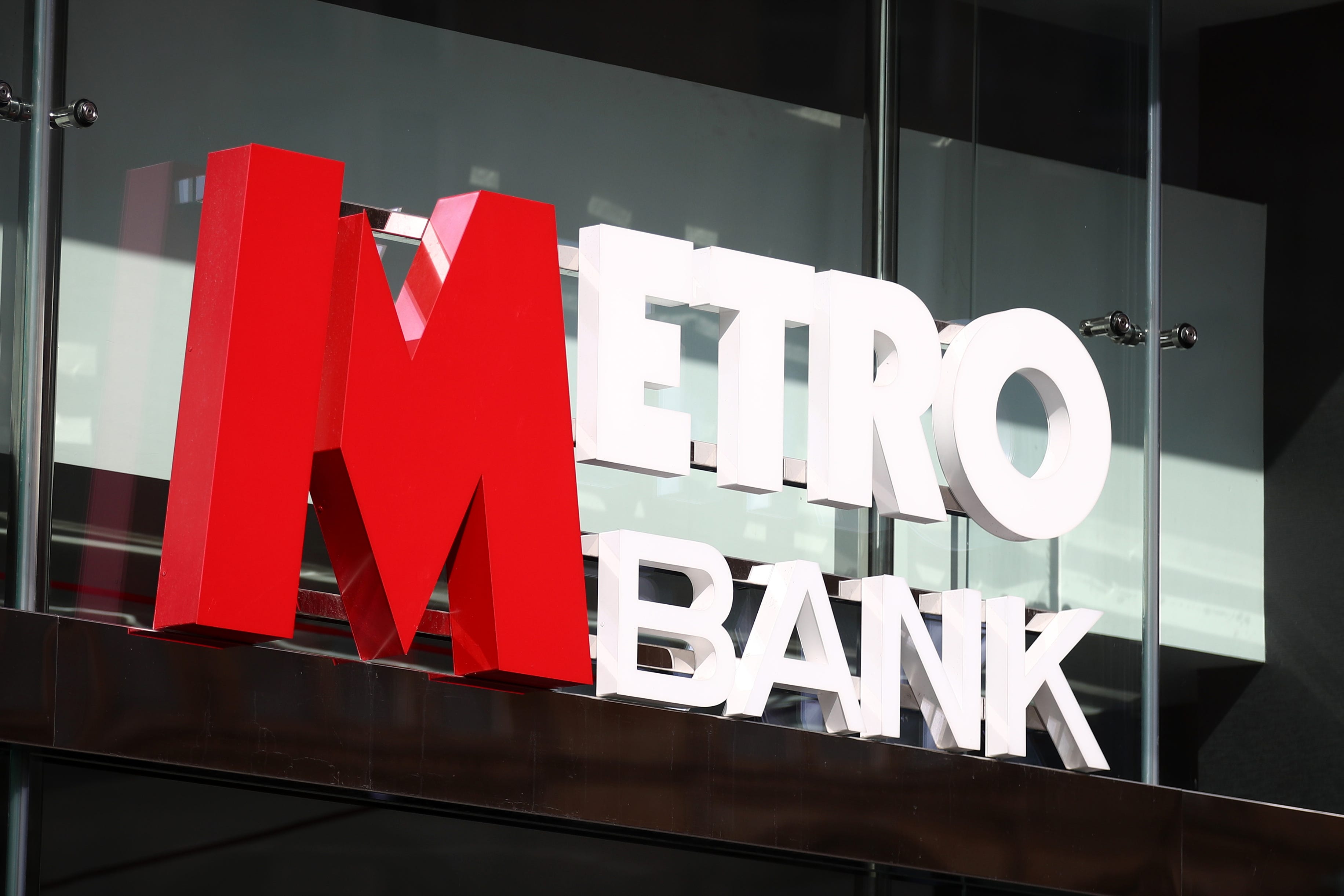Metro Bank narrows losses and ‘draws a line’ under legacy issues
The high street lender said it swung to an underlying pre-tax profit in the last three months of the year thanks to tighter cost controls.

Metro Bank has narrowed its losses and said it is well on its way to being profitable after cutting costs and seeing its finances bolstered by higher interest rates.
The British bank still posted pre-tax losses of £70.7 million over last year, but it was significantly lower than the £245.1 million reported at the end of 2021.
The lender had suffered heavy losses during Covid, and had to put cash aside in previous years to cover historical global sanctions as well as fines from the UK regulator over an accounting blunder.
But the bank insisted it has drawn a line under its legacy issues and has “greatly improved” its reporting processes and controls since.
It revealed it swung to an underlying pre-tax profit in the last three months of the year thanks to tighter cost controls.
We returned to profitability, resolved our legacy issues and further strengthened the foundations for future sustainable growth
It managed to cut costs through moves such as simplifying its IT processes, improving its online and mobile app, and closing three branches during 2022.
Nevertheless, Metro Bank said it plans to open 11 more branches, which it calls “stores”, by the end of 2025, adding to its existing network of 76 which are open seven days a week, 362 days a year.
But the new stores have been redesigned and will be much cheaper to run, with less surplus floor space and more cost-effective fixtures and fittings, the bank said.
The new branches are set to be opened in locations in the north of England with large local communities and plenty of smaller businesses.
The lender bumped up lending during the year and saw the total value of its mortgages increase by 14% to £7.6 billion.
Like other lenders, it has benefitted from the Bank of England hiking up interest rates over the past year, cashing in on the higher cost of borrowing.
Its net interest margin – referring to the difference between the interest a bank pays to savers and what it receives from borrowers – increased to 1.92% from 1.4%.
However, the boost could be short-lived as it said it expects fewer base rate moves this year which will limit further growth of its net interest margin.
Furthermore, inflationary pressures in the economy could push up costs this year for things like staff wages and paying suppliers, it cautioned.
It also set aside £39.9 million to cover expected credit losses with borrowers likely to be further strained as the economy shrinks.
Daniel Frumkin, the chief executive at Metro Bank, said: “I’m pleased with Metro Bank’s performance over the past year and the successful completion of our transformation plan.
“We returned to profitability, resolved our legacy issues and further strengthened the foundations for future sustainable growth.
“While I remain confident in the underlying business, material headwinds do exist, including the macro-economic environment and increasing competition for liabilities.”
Shares in Metro Bank were down by more than 4% on Thursday morning.
Bookmark popover
Removed from bookmarks